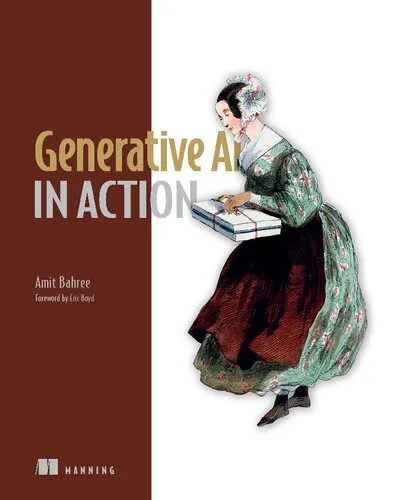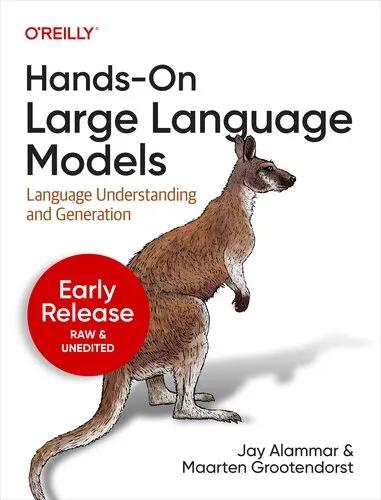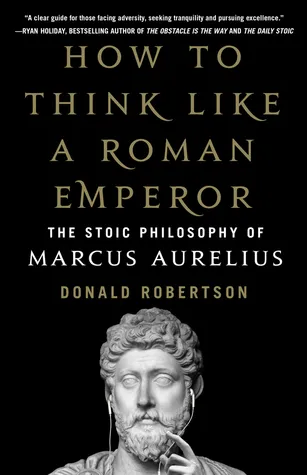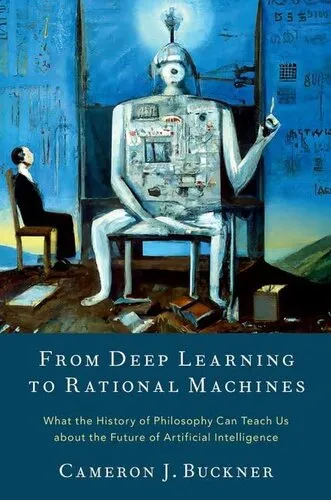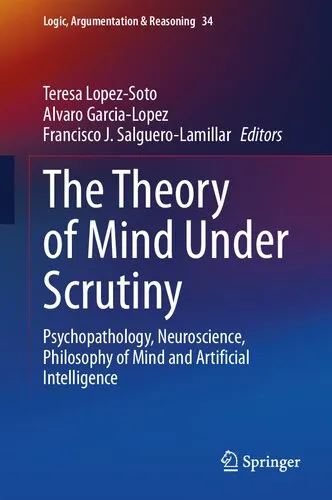Digital Habitus: A Critique of the Imaginaries of Artificial Intelligence (Routledge Studies in Contemporary Philosophy)
4.5
بر اساس نظر کاربران

شما میتونید سوالاتتون در باره کتاب رو از هوش مصنوعیش بعد از ورود بپرسید
هر دانلود یا پرسش از هوش مصنوعی 2 امتیاز لازم دارد، برای بدست آوردن امتیاز رایگان، به صفحه ی راهنمای امتیازات سر بزنید و یک سری کار ارزشمند انجام بدینکتاب های مرتبط:
معرفی کتاب
کتاب 'Digital Habitus: A Critique of the Imaginaries of Artificial Intelligence' نوشته آلبرتو رومله، به بررسی عمیق از مفاهیم و تصورات مربوط به Artificial Intelligence (AI) میپردازد. این اثر در سری مطالعات فلسفه معاصر توسط Routledge منتشر شده و به نقد نگرشها و تخیلاتی که پیرامون این فناوری پیچیده و نوظهور شکل گرفتهاند، میپردازد.
خلاصه کتاب
‘Digital Habitus’ به تجزیه و تحلیل ساختارهای زبانی، فرهنگی و اجتماعی که در ایجاد تصورات و انتظارات پیرامون Artificial Intelligence نقش دارند میپردازد. این کتاب به ما نشان میدهد که چگونه این فناوری نه تنها به عنوان یک پیشرفت تکنولوژیکی بلکه به عنوان یک پدیده اجتماعی و فرهنگی شکل گرفته است. با استفاده از مفاهیم برگرفته از فلسفه معاصر، نویسنده تلاش میکند تا به ما نشان دهد که چگونه این تخیلات به طرق مختلف رفتار و درک ما از فناوری را تحت تأثیر قرار داده است.
نکات کلیدی
- تحلیل عمیق از تاثیرات فرهنگی و اجتماعی AI.
- بررسی رابطه میان تخیلات و پیشرفتهای واقعی در حوزه فناوری.
- نگاه انتقادی به موضوعاتی مانند هوش مصنوعی عمومی، علم دادهها، و اتوماسیون.
جملات معروف از کتاب
“تصوراتی که از AI در ذهن داریم، بیش از آنکه تنها بر مبنای واقعیتهای علمی باشد، ساخته و پرداخته ذهن انسانند که تحت تأثیر فرهنگ و جامعه قرار گرفتهاند.”
“فهم ما از تکنولوژی به همان اندازه که از پیشرفتهای فنی میآید، از روایات و داستانهایی که حول آن شکل میگیرد، ناشی میشود.”
چرا این کتاب مهم است
کتاب ‘Digital Habitus’ در تحولات اخیر فناوری و تغییرات اجتماعی نقش چشمگیری دارد. این اثر نه تنها برای دانشجویان و پژوهشگران حوزه فلسفه و تعاملات انسان و کامپیوتر مهم است بلکه به عموم علاقهمندان به درک بهتر از تکنولوژی و تأثیرات آن بر جامعه کمک میکند. با نگاه نقادانه به تصورات ما از Artificial Intelligence، این کتاب به ما کمک میکند تا با دیدگاهی واقعبینانهتر به این پدیده پیچیده نزدیک شویم و بتوانیم بهتر در مورد آینده آن تصمیمگیری کنیم.
Introduction to "Digital Habitus: A Critique of the Imaginaries of Artificial Intelligence"
Authored by Alberto Romele, "Digital Habitus" offers a prismatic view into the intricate relationships between artificial intelligence (AI) and contemporary digital culture, filtered through the lens of philosophical discourse. This book underscores the critical role of human imagination in both shaping and understanding AI, diverging from the conventional, utilitarian narratives often associated with AI technologies. By examining AI's societal implications through a rich philosophical context, "Digital Habitus" invites readers to engage with deeper questions around meaning, identity, and technological influence.
Detailed Summary of the Book
In "Digital Habitus," Romele embarks on an intellectual journey that melds philosophy, cultural theory, and technology studies. The book spans several key themes, beginning with an exploration of the philosophical underpinnings of AI. It highlights how narratives and imaginaries around AI are not purely technical or scientific endeavors but are deeply embedded within cultural and ideological constructs.
Drawing on thinkers like Pierre Bourdieu, the concept of "habitus" is central to the discussion, representing the ways in which societal structures and cultural norms shape individual perceptions and actions. Romele extends this concept into the digital realm, coining the term "digital habitus" to describe the new modes of human experience and interaction fostered by digital technologies and AI.
Throughout the book, Romele argues that the imaginaries surrounding AI reflect broader existential concerns and ethical questions. How do these technologies influence our conception of self? What are the implications for autonomy, agency, and authenticity in a digitally mediated world? By critically engaging with these questions, Romele seeks to unravel the complex web of narratives that sustain the allure and apprehension surrounding AI.
Key Takeaways
- AI cannot be fully understood without acknowledging the cultural and ideological narratives that surround it.
- The concept of "digital habitus" offers a novel framework for exploring how AI reshapes human behavior and identity.
- Philosophical reflection is crucial in navigating the ethical and existential questions posed by advanced technologies.
- Romele advocates for a more nuanced discourse on AI that goes beyond technological determinism and considers the richness of human experience.
Famous Quotes from the Book
"Artificial intelligence, in its many forms, acts as both a mirror and lens, reflecting and refracting the depths of human aspiration and anxiety."
"To comprehend AI, we must first unravel the cultural narratives that have engendered its development and ceded it its power."
"In an era where digital technologies permeate every facet of life, the question is not whether we are shaped by these tools, but how and to what extent."
Why This Book Matters
The importance of "Digital Habitus" lies in its interdisciplinary approach, bridging philosophy and technology, and offering an alternative perspective in AI discourse. At a time when AI impacts nearly every sector, from healthcare to governance, Romele's philosophical critique serves as a crucial counterbalance to purely technical debates.
This book matters because it challenges readers to think critically about the cultural and social fabric into which AI is woven. Romele's work highlights the necessity of engaging with AI not just as a set of tools or systems, but as deeply significant phenomena that hold the potential to redefine human existence. By focusing on the imaginaries of AI, Romele encourages a dialog that is both reflective and forward-thinking, urging society to contemplate what it means to be human in an increasingly artificial world.
دانلود رایگان مستقیم
شما میتونید سوالاتتون در باره کتاب رو از هوش مصنوعیش بعد از ورود بپرسید
دسترسی به کتابها از طریق پلتفرمهای قانونی و کتابخانههای عمومی نه تنها از حقوق نویسندگان و ناشران حمایت میکند، بلکه به پایداری فرهنگ کتابخوانی نیز کمک میرساند. پیش از دانلود، لحظهای به بررسی این گزینهها فکر کنید.
این کتاب رو در پلتفرم های دیگه ببینید
WorldCat به شما کمک میکنه تا کتاب ها رو در کتابخانه های سراسر دنیا پیدا کنید
امتیازها، نظرات تخصصی و صحبت ها درباره کتاب را در Goodreads ببینید
کتابهای کمیاب یا دست دوم را در AbeBooks پیدا کنید و بخرید
1467
بازدید4.5
امتیاز0
نظر98%
رضایتنظرات:
4.5
بر اساس 0 نظر کاربران
Questions & Answers
Ask questions about this book or help others by answering
No questions yet. Be the first to ask!
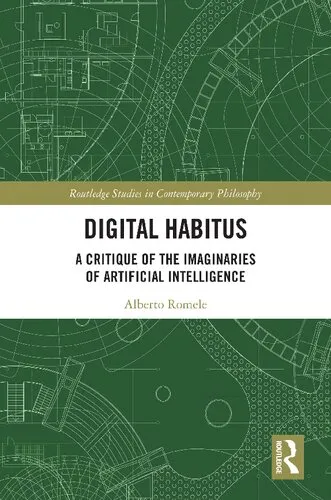


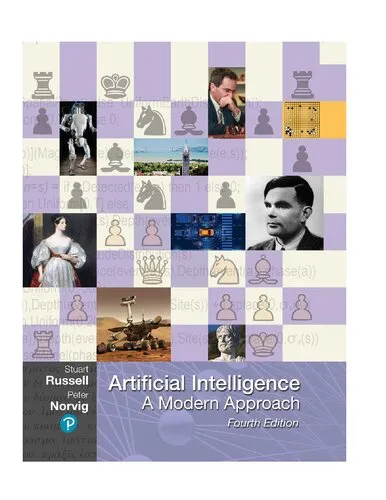

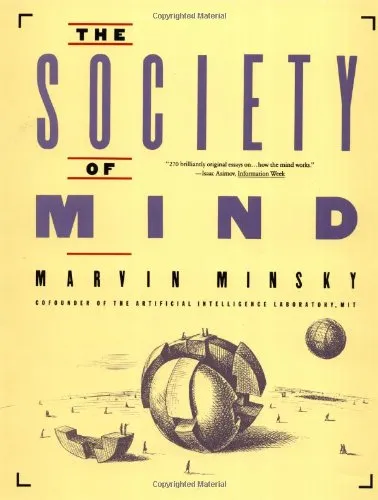


![Responsible AI in the Enterprise: Practical AI Risk Management for Explainable, Auditable, and Safe Models [Team-IRA]](https://s3.refhub.ir/images/thumb/Responsible_AI_in_the_Enterprise__Practical_A_8189.webp)
